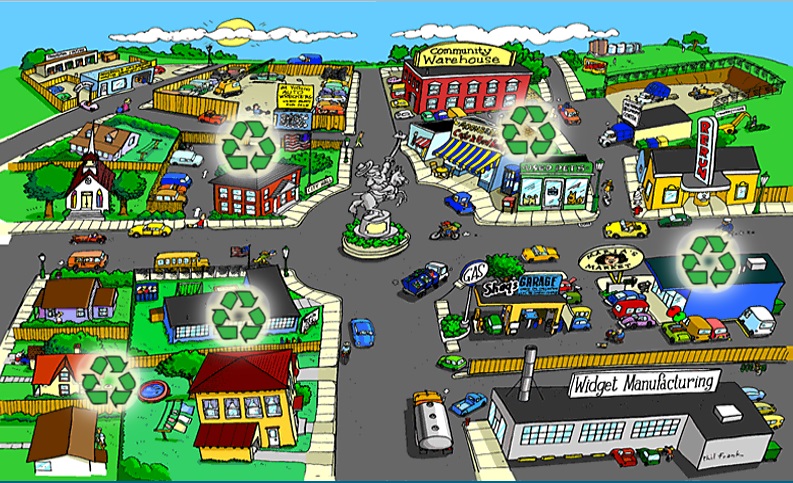
A flash game available on the Environmental Protection Agency website since at least early 2017 made surprising use of copyrighted music from Nintendo’s 2006 game Yoshi’s Island DS.
Recycle City Challenge is an extremely simple educational Web game that asks players to answer basic questions about how to reduce waste and energy use. But yesterday, fan site Nintendo Soup was among the first to publicly notice that the Web game used a looping version of Yoshi’s Island DS‘ “Underground” theme in the background.
The music, which played in a version of Recycle City Challenge accessed by Ars as recently as this morning, has since been removed from the live version on the EPA’s website. You can still hear it in this Internet Archive copy of the site, though, and compare that directly to the same song on the Yoshi’s Island DS soundtrack. Perhaps not coincidentally, a file named “yoshidsunderground.mp3” containing a copy of the song in question was in a music subfolder on the EPA website (as cataloged in this Internet Archive link) until earlier today.
“The Recycle City Challenge game was created for EPA by a contractor,” an EPA spokesperson told Ars. “We are looking into whether the contractor received permission to use the music, to the extent permission was necessary in this instance.”
Can they do that?
It seems extremely unlikely that Nintendo offered permission or sold a license for a minor track from an aging Nintendo DS release to be used in a relatively unknown US government Web game (Nintendo has yet to respond to a request for comment from Ars Technica). But there is at least some question as to “the extent permission was necessary in this instance,” as the EPA spokesperson put it.
While the Recycle City Challenge theme is strikingly similar to the Yoshi’s Island DS song in question, it doesn’t seem to be a direct rip of the actual recording from the original game. Instead, it sounds a bit like a MIDI-style cover version of the song, which is a genre that should be familiar to anyone who frequented certain corners of the Internet since the late ’90s.
Using a cover version doesn’t put the EPA in the clear here, of course. Even the kind of compulsory cover license usually used to release commercial cover versions of other songs likely wouldn’t cover a derivative work like a game soundtrack, according to Cornell Law Professor James Grimmelmann. For that to pass legal muster, you’d likely need direct permission from the original copyright holder for the composition, he told Ars.
The other argument the EPA could make here is that of fair use. “It is technically a non-commercial, educational use,” Grimmelmann allowed when examining the guidelines for what determines fair use standards. “However, I don’t think it’s terribly transformative. Putting the same music on a different game doesn’t cause any new insights into [the music].” The fair use argument would be much stronger, Grimmelmann said, if the game was “using [the music] to educate people about [the music] itself. Otherwise, it’s just a small factor on the scale.”
What’s your damage?
The United States government and its subsidiaries can be liable for hefty copyright infringement judgements in cases like these. In 2015, the US Postal Service was ordered to pay $540,000 for unauthorized use of a photo of the Korean War Memorial on a stamp. Last year, the post office also had to pay $3.5 million to the sculptor of a replica Statue of Liberty in Las Vegas, which was mistakenly used in place of the real thing as the subject of a stamp.
That said, Grimmelmann says he doesn’t “see this proceeding into being a major litigation disaster” for the government. “I think Nintendo would be satisfied if they pulled the game and replaced it and apologized.”
And while better diligence and procedures could prevent the government from taking part in such apparent infringement in the future, Grimmelmann doesn’t think it’s necessarily worth implementing draconian copyright checks on every bit of government work. “This is the kind of thing [where] it doesn’t make sense for society to spend all its resources to make sure it never happens,” he said. “Mistakes like this happen from time to time, and we don’t want to say they’re completely OK [or] you can do them forever, but I would think the actual damages here are pretty small.”
https://arstechnica.com/?p=1461291

